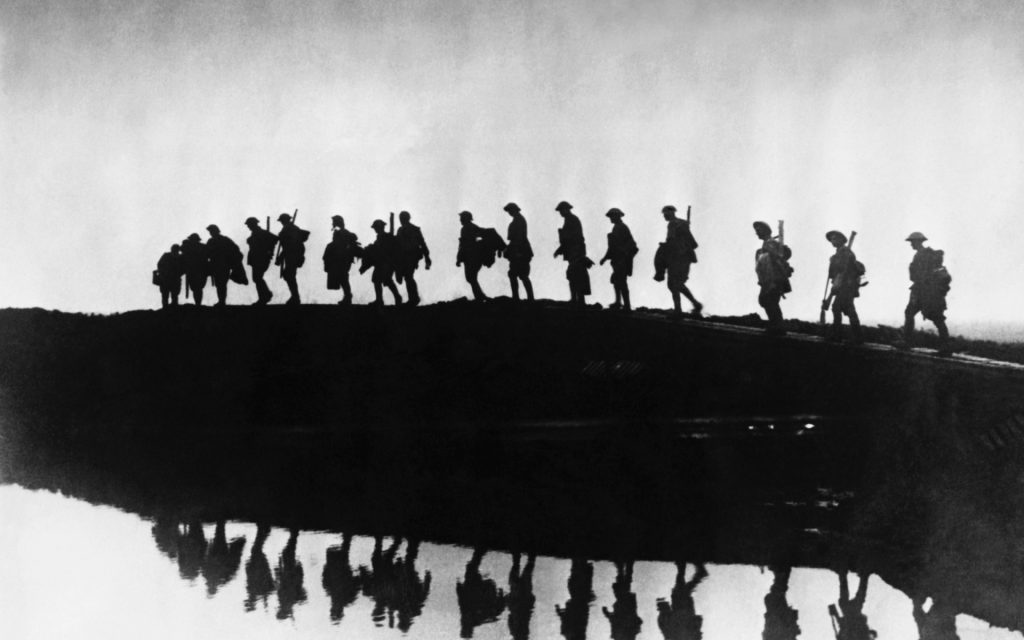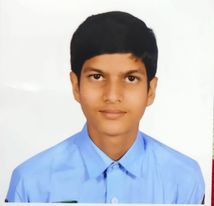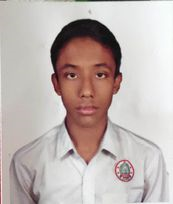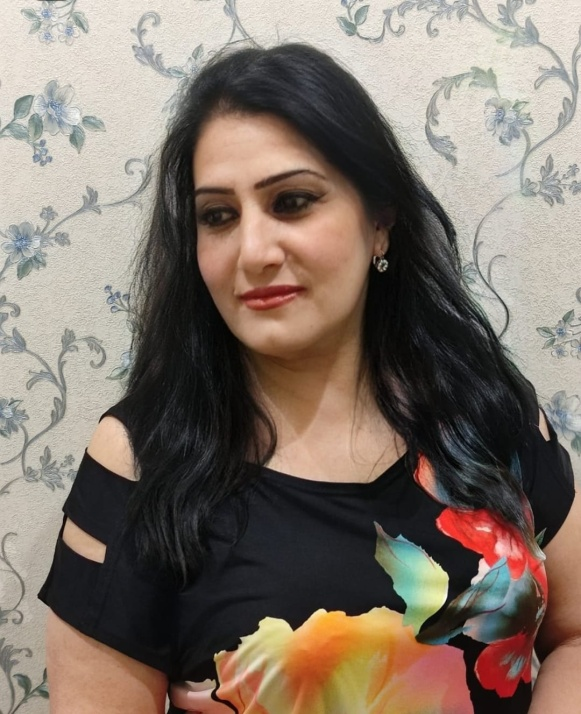
Christopher Bernard will be reading at the Poets for Palestine SF Marathon Reading at San Francisco’s Bird and Beckett Bookstore. For a donation of any amount to the Middle East Children’s Alliance, a nonpartisan and nonpolitical organization helping all children in the region, poets can come and read at any time at the store on October 14th, Indigenous People’s Day. Please feel welcome to sign up here or email poetsforpalestinesf@gmail.com to be scheduled.
This month’s issue addresses our fears and aspirations: whether life will become what we dread, or what we hope.
Wazed Abdullah revels in the joy of the Bangladesh monsoon as Don Bormon celebrates flowers and wispy clouds in autumn. Maurizio Brancaleoni contributes bilingual haiku spotlighting days at the beach, insects, cats, and the rain. Brian Barbeito shares the experience of walking his dogs as summer turns to fall.
Soren Sorensen probes and stylizes sunsets in his photography series. Lan Qyqualla rhapsodizes about love, dreams, flowers, colors, poetry, and harp music. Ilhomova Mohichehra poetically welcomes autumn to her land.
John L. Waters reviews Brian Barbeito’s collection of poetry and photography Still Some Summer Wind Coming Through, pointing out how it showcases nature and the “subtle otherworldly” within seemingly ordinary scenes. Oz Hartwick finds a bit of the otherworldly within his ordinary vignettes as he shifts his perspective.

Kelly Moyer crafts stylized photographic closeups of ordinary scenes, rendering the familiar extraordinary. Ma Yongbo paints scenes where ordinary life becomes unreal, suffused with images associated with horror.
Sayani Mukherjee speaks of a bird’s sudden descent into a field of flowers and comments on our wildness beneath the surface. Jake Cosmos Aller illustrates physical attraction literally driving a person wild.
Mesfakus Salahin asserts that were the whole natural world to become silent, his love would continue. Mahbub Alam views life as a continual journey towards his beloved. Tuliyeva Sarvinoz writes tenderly of a mother and her young son and of the snow as a beloved preparing for her lover. Sevinch Tirkasheva speaks of young love and a connection that goes deeper than looks. llhomova Mohichehra offers up tender words for each of her family members. She also expresses a kind tribute to a classmate and friend.
Meanwhile, rather than describing tender loving affection, Mykyta Ryzhykh gets in your face with his pieces on war and physical and sexual abuse. His work speaks to the times when life seems to be an obscenity. Z.I. Mahmud looks at William Butler Yeats’ horror-esque poem The Second Coming through the lens of Yeats’ contemporary and tumultuous European political situation.
Alexander Kabishev’s next tale of life during the blockade of St. Petersburg horrifies with its domestic brutality. Almustapha Umar weeps with grief over the situations of others in his country.

In a switch back to thoughts of hope, Lidia Popa speaks to the power of poetry and language to connect people across social divides. Hari Lamba asserts his vision for a more just and equal America with better care for climate and ecology. Perizyat Azerbayeva highlights drip irrigation as a method to tackle the global problem of a shortage of clean drinkable water. Eldorbek Xotamov explores roles for technology and artificial intelligence in education.
Elmaya Jabbarova expresses her hopes for compassion and peace in our world. Eva Petropolou affirms that action, not mere pretty words, are needed to heal our world.
Ahmad Al-Khatat’s story illustrates the healing power of intimate love after the trauma of surviving war and displacement. Graciela Noemi Villaverde reflects on the healing calm of silence after war.
Meanwhile, Christopher Bernard showcases the inhumanity of modern warfare in a story that reads at first glance like a sci-fi dystopia. Daniel De Culla also calls out the absurdity of war and the grossness of humor in the face of brutality.
Pat Doyne probes the roots of anti-Haitian immigrant rumors in Springfield, Ohio and critiques fear-mongering. Jorabayeva Ezoza Otkir looks to nature for metaphors on the corrosive nature of hate.

On a personal level, Nosirova Gavhar dramatizes various human responses to loss and trauma. Kendall Snipper dramatizes an eating disorder ravaging a woman’s life and body.
Donna Dallas’ characters are lonely, bruised by life, and drawn to what’s not good for them: drugs, bad relationships, lovers who don’t share their dreams. J.J. Campbell evokes his miserable life situation with dark humor.
Meanwhile, Maja Milojkovic savors each moment as she creates her own happiness through a positive attitude. In the same vein, Lilian Dipasupil Kunimasa celebrates the power of a free and self-confident mind and the joy of spending time with small children.
Tuliyeva Sarvinoz urges us to move forward toward our goals with faith and dedication. Numonjonova Shahnozakhon echoes that sentiment, encouraging perseverance and resilience. S. Afrose resolves to move forward in life with optimism and self-respect.
Michael Robinson reflects on the peace he finds in his continuing Christian walk. Federico Wardal reviews anthropologist Claudia Costa’s research into spiritual fasting practices among the Yawanawa tribe in Brazil.

Duane Vorhees explores questions of legacy, inheritance, and immortality, both seriously and with humor. Isabel Gomes de Diego highlights Spanish nature and culture with her photographic closeups of flowers, religious icons, and a drawing made as a gift for a child’s parents. Federico Wardal highlights the archaeological findings of Egyptologist Dr. Zahi Hawass and his upcoming return to San Francisco’s De Young Museum. Zarina Bo’riyeva describes the history and cultural value of Samarkand.
Sarvinoz Mansurova sends outlines from a conference she attended on Turkic-adjacent cultures, exploring her region as well as her own Uzbek culture.
Barchinoy Jumaboyeva describes her affection for her native Uzbekistan, viewing the country as a spiritual parent. Deepika Singh explores the mother-daughter relationship in India and universally through her dialogue poem.
David Sapp’s short story captures the feel of decades-ago Audrey Hepburn film Roman Holiday as it describes a dream meeting between lovers in Rome. Mickey Corrigan renders the escapades and tragedies of historical women writers into poetry.
Duane Vorhees draws a parallel between Whitman’s detractors and those who would criticize Jacques Fleury’s poetry collection You Are Enough: The Journey To Accepting Your Authentic Self for having a non-traditional style.

This set of poems from Jacques Fleury expresses a sophisticated childlike whimsy. A few other pieces carry a sense of wry humor. Daniel De Culla relates a tale of inadvertently obtaining something useful through an email scam. Taylor Dibbert reflects on our escapes and “guilty pleasures.”
Noah Berlatsky reflects on both his progress as a poet and editors’ changing tastes. Sometimes it takes growing and maturing over time as a person to create more thoughtful craft.
Alan Catlin strips artworks down to their bare essential elements in his list poetry, drawing attention to main themes. Mark Young focuses on kernels of experience, on the core of what matters in the moment. J.D. Nelson captures sights, experiences, and thoughts into evocative monostich poems worthy of another reading.
Kylian Cubilla Gomez’ pictures get close up to everyday miracles: a beetle, car components, action figures, a boy in a dinosaur costume.
We hope that this issue, while being open about the worries we face, is also a source of everyday miracles and thought-provoking ideas. Enjoy!




